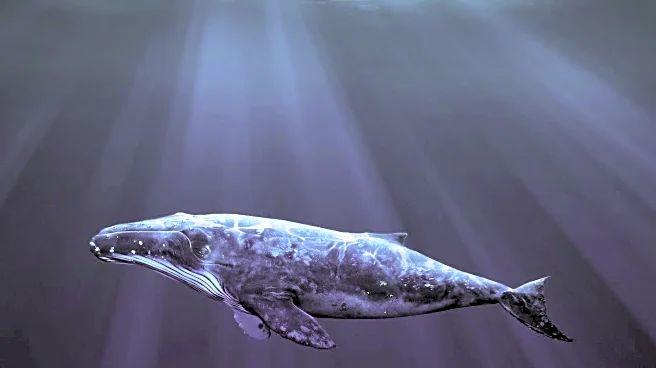What is the story about?
What's Happening?
Fossils discovered along Victoria's Surf Coast have led to the identification of a new prehistoric whale species, Janjucetus dullardi. This ancient whale, dating back 26 million years, had adaptations for hunting, including large eyes and sharp teeth. The discovery was made by Victoria resident Ross Dullard, who donated the fossil to Museums Victoria. Researchers have concluded that Janjucetus dullardi belonged to the mammalodontids group, offering insights into early whale evolution and the region's historical significance as a cradle for unusual marine species.
Why It's Important?
The discovery of Janjucetus dullardi provides valuable information on the evolution of baleen whales, contributing to our understanding of marine mammal history. The fossil's preservation of teeth and ear structures offers insights into how early whales fed, heard, and navigated. This finding underscores the importance of public contributions to scientific research and highlights the potential for significant discoveries in local environments. The research enhances our knowledge of prehistoric marine ecosystems and the evolutionary adaptations of ancient species.
Beyond the Headlines
The discovery of Janjucetus dullardi emphasizes the role of public engagement in scientific research. It highlights the potential for significant contributions from non-scientists in uncovering important fossils. The study of this prehistoric whale may lead to further exploration of the region's paleontological significance, potentially rewriting aspects of marine evolution history. The findings could inspire increased interest in paleontology and the preservation of fossil sites.
















